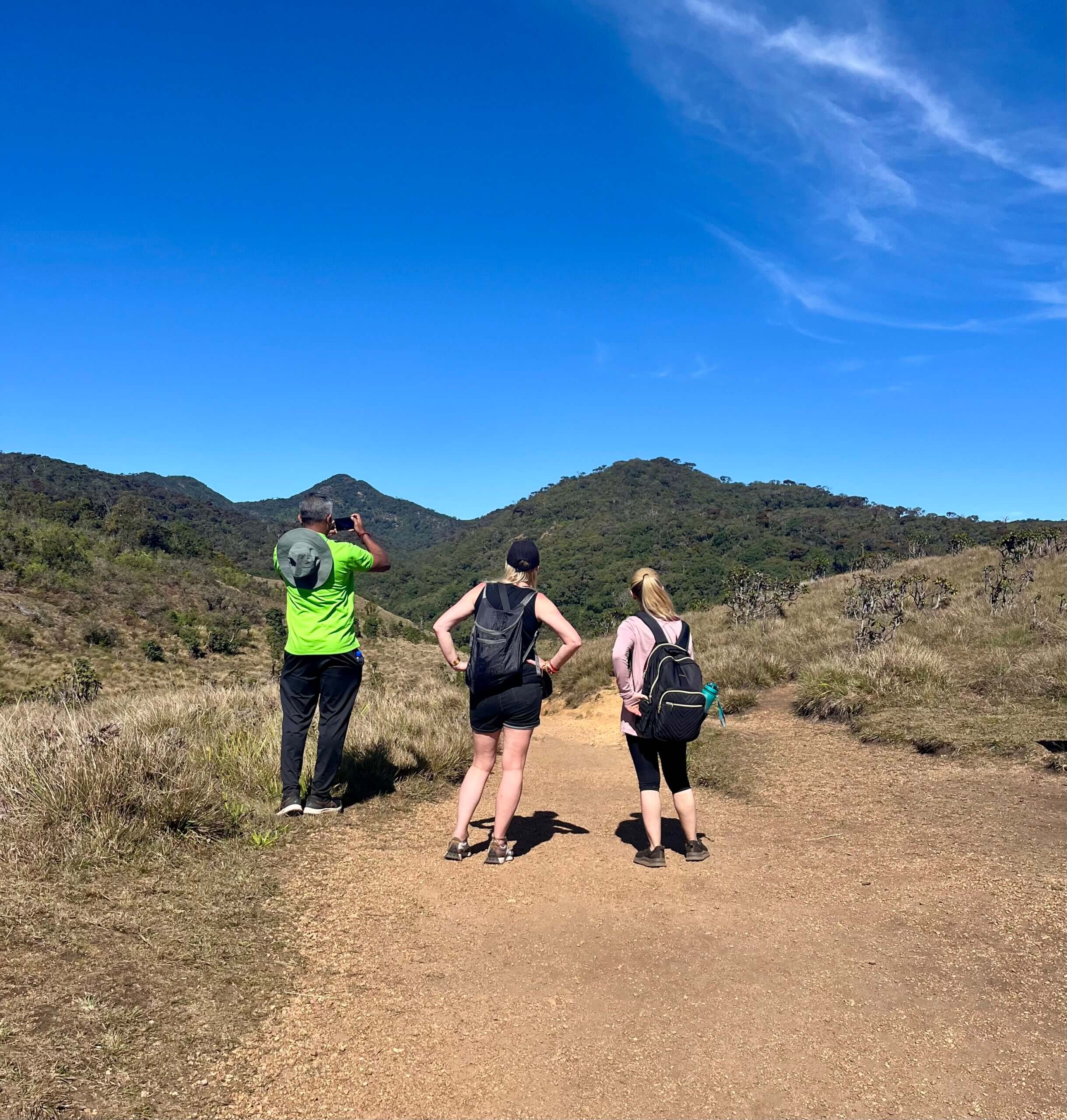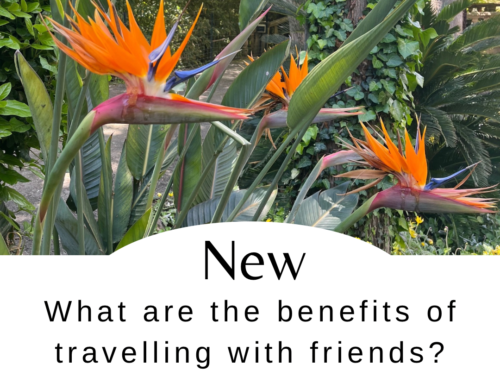Dr Nicola Cann, Educational Psychologist & Regular Contributor
There are many benefits to travelling with friends. From sharing significant experiences with people we care about, to strengthening friendships and creating shared memories. But how can we create the best possibilities for a successful trip with friends? It’s all in the planning.
Perhaps you’re planning a trip with friends right now, or you’d like to plan a trip in the future. Either way, learning about the psychology behind planning trips with friends can provide insights and help us make the most of the shared travel experience.
Here are some things to consider.
What do you hope to get from the trip?
Typically, when planning a trip with friends, the amount of common interest is a key factor in how connected everyone feels as a group (Zhang et al., 2018). Working out your hopes and expectations for the trip and communicating these to your friends can help you to ensure your goals are aligned.
Are there particular locations you want to visit? Perhaps you’re really feeling the need for some adventure? Or maybe the priority for you is relaxation?
You don’t need to want exactly the same things as your friends in order to enjoy your travel together, but if your expectations are misaligned and you haven’t communicated this things can go awry.
A friend of mine who is a serious hiker recently planned a trip with a friend who is not a serious hiker. When he said ‘hiking’ he meant multiple full days of hiking and sleeping in tents. When she heard ‘hiking’ she imagined them gently strolling about the countryside. They had a successful trip in the end but only after a few days of mutual struggles. Avoid this by having the conversations ahead of time.
Making decisions
A key part of planning your trip is making decisions, so this is something worth spending some time thinking about. Do you usually travel with family, or with a partner, or solo? How do you usually make decisions? How might it be different this time?
Perhaps you usually make all of the decisions and like to have everything mapped out in advance. Or maybe your partner is the planner and you like to relinquish all responsibility to them. Or perhaps you don’t like to plan at all – I’m a big fan of spontaneity myself.
Whatever your travel planning style, you’ll need to figure this out with your friends. The research says there are some key approaches that friends usually use for decision making.
What’s the best strategy?
There will inevitably be times when planning your trip together that you and your friends disagree. Perhaps they’re really into museums but you want to focus on beach time. How do you tackle this?
The research suggests that there are three main strategies used by friends when planning trips:
- Avoidance: This approach tends to be used when people want to avoid conflict. It will successfully help you do that, but you might not end up getting the trip you’d hoped for.
- Voting: This one works best in larger groups where there’s little chance of achieving consensus. It means there will be people who don’t get exactly what they want but who can argue with the democratic process?
- Negotiation: Usually the most effective strategy, but it requires you to be assertive. The goal here is not to find the ultimate solution, but rather to find a solution that everyone can be happy with.
(Decrop et al., 2004)
How to negotiate effectively
Knowing when to compromise is key to successfully negotiating with your friends. If you’ve had your heart set on going on that guided tour then hopefully you can find ways to express this clearly. But it’s also important to recognise when the primary goal is simply about spending time together.
Bring it back to your goals. Maybe the trip will feel like a total let down if you don’t see that temple. In which case it’s fine to prioritise this. But figuring out what you’re happy to compromise on might just open up opportunities to try new things that you wouldn’t otherwise have done.
Compromising is also a great way to strengthen your friendship by showing the other person that you care about their needs and values. Remembering this might make it easier to let go of some of the less important things you’ve compromised on.
Working together – It’s not all about compromise
Planning a trip with friends can provide great opportunities to spend more time together, working towards something you’re both invested in. If you view it in this way, even the most boring or annoying aspects of trip planning can become enjoyable.
Are there any aspects of planning the trip that you’re keen to avoid? Or any that you’d like to take the lead on? Playing to your strengths, and distributing roles and responsibilities in a transparent way can simplify the whole process and minimise the chances of conflict (Decrop et al., 2004). Apps like Wanderlog can provide a great way to share your planning with each other, allowing you to map out routes and add in accommodation as you book it.
Navigating a new environment for your friendship
Often friendships are maintained by shared activities that form part of our usual routines. We may have friends from work, or from a book club or from a gym class. When we’re travelling and these routines are suddenly absent, it can be an opportunity to redefine ourselves and our friendships (Matteucci et al., 2022). We may suddenly gain new insights into our friends’ personalities and get to know them in new ways.
Years ago I hiked the Isle of Wight Coastal Path with an old friend. Walking ten miles a day together for a week and eating all of our meals together meant we got to know each other in ways that our usual lives wouldn’t allow. We learnt a lot of new things about each other on that trip and that led to a deeper friendship.
Anticipating and managing challenges
However well you get on usually, challenges are an inevitable part of planning a trip with friends. You’ll be navigating new environments and new experiences together, which can be a great way to deepen the friendship, but which comes with its own challenges.
If you know your friend (and yourself) well you might already have an idea of where these tensions are likely to arise. Perhaps you have very different ideas about travel budgets, or the level of adventure versus relaxation that makes for a good trip, or maybe they have a habit that really grates on you! This is totally normal, and maybe you even have some annoying habits yourself! The key is knowing how to manage these annoyances in a way that means you can all still enjoy your trip.
Consider where these pressure points might arise, and talk them through with your friend in advance to avoid any difficult surprises. How will you work things out together to ensure you’re both able to get what you want from the trip?
It’s also worth considering ways in which your friendship has managed disagreements in the past. Were you able to work through it? How did you do that? Maybe even make a plan for how you’ll manage disagreements while you’re away. Sometimes there are even apps that can help – you can take some of the stress out of sharing a budget by using an app like Splitwise, which allows you both to keep track of what you’ve spent.
Conclusion
All friendships are unique, so you’ll need to figure out how the psychology applies to you. But planning your trip with an attitude of openness and curiosity shows your friend that you respect them and care about their views. With a little foresight and a willingness to compromise you’ll be setting yourselves up for a great trip together.
If you liked this article check out How do I get along with my friends on vacation?
References
Decrop, A., Pecheux, C., & Bauvin, G. (2004). Let’s make a trip together: an exploration into decision making within groups of friends. Advances in consumer research, 31(1), 291-297.
Matteucci, X., Volić, I., & Filep, S. (2022). Dimensions of friendship in shared travel experiences. Leisure Sciences, 44(6), 697-714.
Zhang, L., Sun, X., & Wagner, C. (2018). A human factors approach to exploring the experience of group trip planning from the perspective of intragroup interaction. International Journal of Human–Computer Interaction, 34(7), 640-652.





